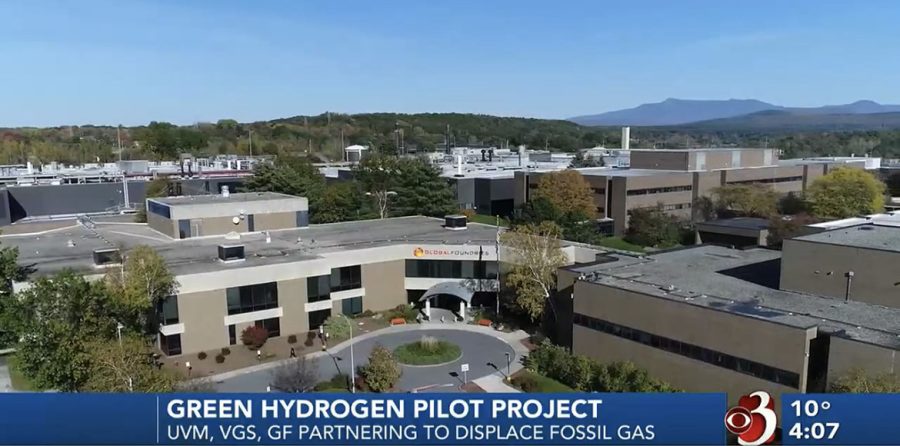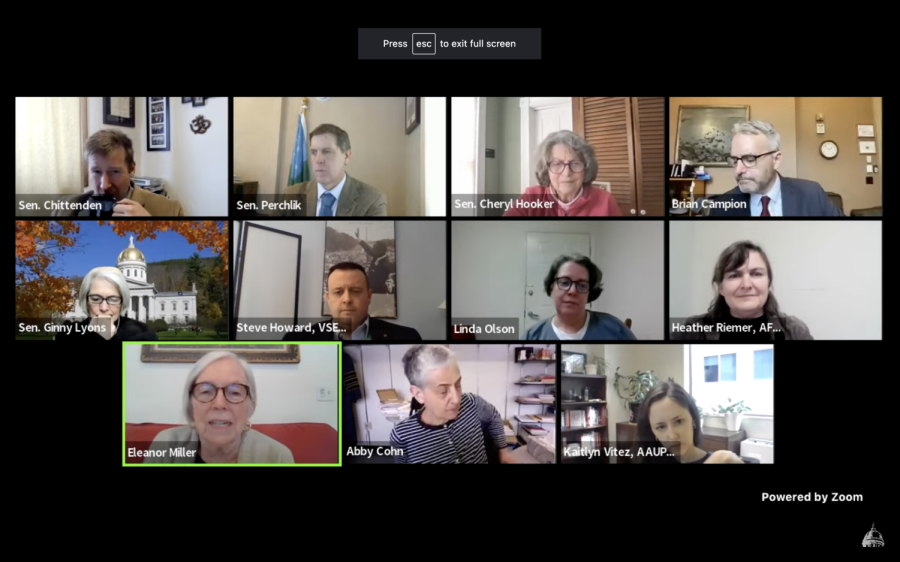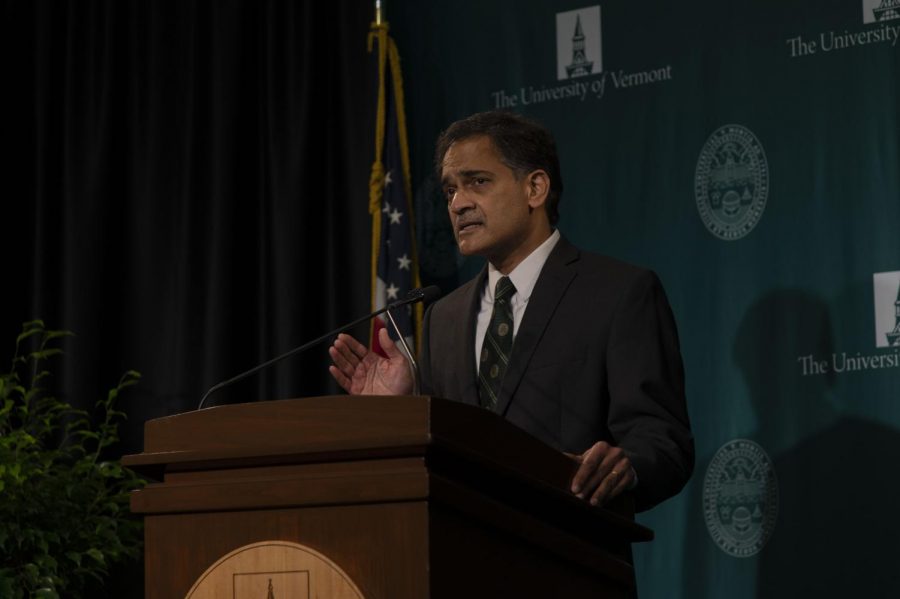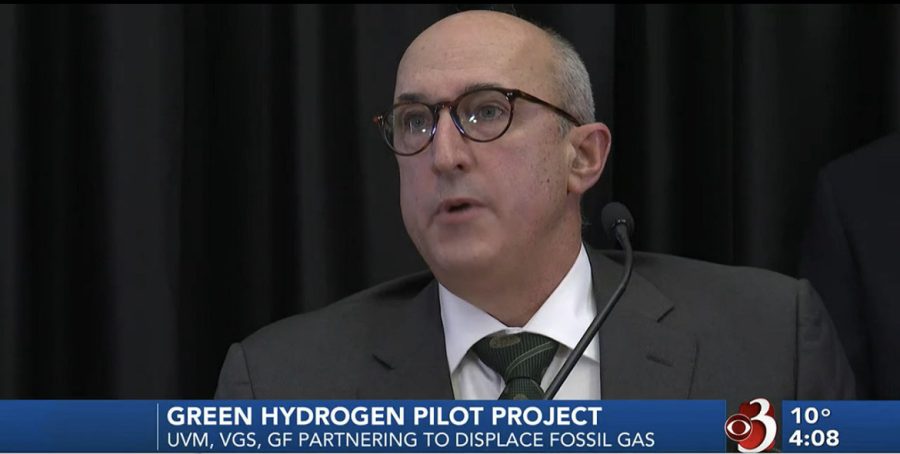Despite protests, a Vermont gas company and Gov. Peter Shumlin’s administration are pushing forward on building a 41-mile natural gas pipeline through Addison County from Colchester to Middlebury.
The Addison Natural Gas Project was approved in 2013 by the Vermont legislature in order to expand access to natural gas from Franklin and Chittenden Counties to Addison County, Vermont.
Since its proposal, the pipeline’s construction has been met with protests in the form of marches, occupying street corners and homeowners refusing to allow government purchase of their property, said professor Brian Tokar, a 350 Vermont board member.
[media-credit name=”COLE WANGSNESS” align=”alignnone” width=”430″] [/media-credit]
[/media-credit]
350 Vermont is a nonprofit organization protesting the new pipeline, according to their website.
“I’m thinking about my parents living in Montpelier, and if something like that were being built in their backyard, I think they would be really upset about it,” first-year Jen Lorden said.
The most recent protest was a “tree sit” in Monkton, VT by Rising Tide Vermont, an activist organization protesting the pipeline, according to their website.
For three days, members of the organization sat in trees along the pipeline route to protest its construction until the demonstration was stopped by the landowner, said Rising Tide volunteer coordinator Will Bennington
“Our elected official and state regulators have failed us, so we’re going to continue with the rich history in this country of using direct action and civil disobedience,” Bennington said.
Vermont Gas hopes to provide residents of Addison County with the same opportunity for a more affordable energy source than oil as it gives to Franklin and Chittenden Counties, Beth Parent, Communications Manager for Vermont Gas said in an April 5 email statement.
Tokar said speculates the Shumlin administration approved the pipeline with lower energy costs with residents in mind.
However, the project’s cost has increased 78 percent from its originally approved proposal in 2013, according to a Burlington Free Press article.
The Shumlin administration declined to comment.
Additionally, Vermont Gas has started trucking gas to areas of Vermont since the project’s inception, Tokar said. This potentially gives access to cheaper natural gas to more residents without having to build the pipeline.
Rising Tide sees any form of natural gas expansion as detrimental.
“Continued expansion of fossil fuel infrastructure locks in our reliance on fossil fuels.” Bennington said. “To do that at this point is a major threat to communities across the world.”
On its website, Vermont Gas describes natural gas as a “clean” energy source.
Burning natural gas does emit less carbon dioxide than burning oil, but leakages in infrastructure cause methane emissions, according to recent study done by Cornell University. Methane has a faster warming rate as a greenhouse gas than carbon dioxide.
“The thing is, this gas is coming from fracking from Canada, which is so horrible. So it’s like, ‘as long as it’s not Vermont, we’ll just go trash Canada,’” sophomore Matt Schildkamp said.
The pipeline will be transporting fracked gas. Fracking is illegal in the state of Vermont.
“There are better ways to get energy that aren’t going to harm the environment,” first-year Corey Pettengill said.













